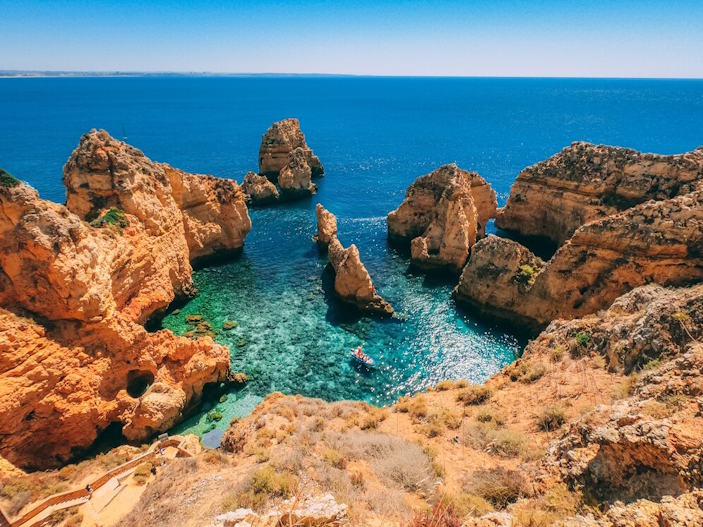
A toolbox for public authorities to address marine plastics and litter from river-to-ocean
Up to 5.500.000€
Description
The main goal of this opportunity is to equip public authorities and stakeholders with practical tools to reduce plastic litter pollution from land to rivers and seas. It aims to accelerate the use of innovative solutions to prevent and remove plastic waste, deepen understanding of how marine litter travels and impacts ecosystems, and support the EU’s target of cutting plastic in the sea by at least 50%. Focus areas include identifying inland sources of litter, co-designing solutions with local actors, and supporting ecosystem restoration, zero pollution, and a sustainable blue economy. The geographic scope covers four key European water basins: Atlantic & Arctic, Mediterranean, Baltic & North Sea, and Danube including the Black Sea, with encouraged collaboration with EU Outermost Regions. Each project should focus on just one basin and tailor its activities to local needs.
Admissible Projects
- Projects must comply with specific format and page limits as set by the submission guidelines.
- Eligible countries must be included, and satellite data should use Copernicus or Galileo/EGNOS services if relevant.
- Solutions must be co-designed with public authorities and stakeholders, focusing on the entire journey of plastic litter from land to sea at the basin level.
- Projects should aim to reduce plastic litter in water systems by 50% and contribute to Mission objectives.
- In-situ data collected must be openly shared through EMODnet in line with FAIR principles.
- Financial support to third parties is allowed, with up to EUR 100,000 per local or regional authority, and projects must show collaboration with relevant initiatives and ensure digital compatibility with the EU Digital Twin of the Ocean.
Examples:
- A city-led project in the Danube basin co-develops riverbank clean-up tools with local NGOs and shares collected data openly.
- A regional authority in the Mediterranean works with fishermen to pilot plastic waste collection and test digital tracking using Copernicus data.
- A Baltic Sea coastal municipality partners with schools and businesses to design education campaigns and monitor results using open data standards.
Eligible Expenses
- Personnel costs for project management and coordination
- Costs for stakeholder engagement workshops and co-design sessions
- Procurement of equipment for monitoring and collecting plastic litter
- Development and implementation of digital tools and platforms
- Data collection, processing, and sharing activities
- Costs for piloting innovative solutions to prevent or remove litter
- Communication and dissemination activities
- Travel and accommodation for project-related meetings and fieldwork
- Training for staff and stakeholders involved in the project
- Sub-grants to local/regional authorities (up to EUR 100,000 per third party)
At the end: Expenses must directly support the project’s objectives and comply with Horizon Europe funding rules. Sub-grants are restricted to one per third party for the full project duration.
Financial Information
- Budget for this Call: 22,000,000€
- Number of Grants attributed: 4
- Maximum value per project: 5,500,000€
- Minimum value per project: 4,500,000€
Eligibility Criteria
- Applicants must be from eligible countries as specified in the Horizon Europe guidelines.
- Projects must focus on one of the four Mission basins or associated regions.
- If using satellite-based data, applicants must use Copernicus and/or Galileo/EGNOS services.
- Financial support to third parties is only for local or regional public bodies in eligible countries, with a maximum of EUR 100,000 each.
- Applicants must follow the required application format and page limits.
- All collected data must be made openly available through EMODnet, following FAIR principles.
- Projects must collaborate with relevant initiatives and ensure compatibility with the EU Digital Twin of the Ocean.
- Eligibility may depend on partnerships and cooperation with public authorities and stakeholders.
Get matched with our experts

Need help applying?
A toolbox for public authorities to address marine plastics and litter from river-to-ocean
5
Specialized Consultants
SMART Application Package

Initial meeting to confirm eligibility.
Connection with the best specialized consultant for the incentive and industry.
Complete management and submission of application.
Timeline
May 7, 2025
Opening of Applications
Applications for the Development and Piloting Phase are now open, inviting participants to engage in research and innovation activities.
Sept. 24, 2025
Deadline for Submission
Midway closure of applications for the Development and Piloting Phase, marking the end of the initial application period.
May 7, 2025
Opening of Applications
Applications for the Development and Piloting Phase are now open, inviting participants to engage in research and innovation activities.
Sept. 24, 2025
Deadline for Submission
Midway closure of applications for the Development and Piloting Phase, marking the end of the initial application period.
